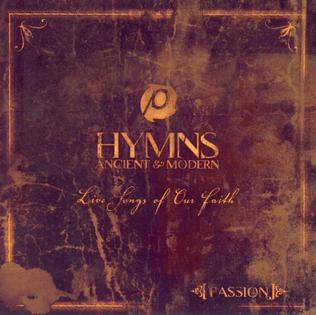This Tuesday we are beginning a walk through the great hymns of the church. Over the next 4-6 weeks we will study our favorite hymns – what they say, where they come from, and what they mean to us. If you have a favorite hymn you would like us to review, please let me know. Anything from a Psalm to the newest song on the radio is fair game.
This week is going to be a little different than the following weeks. This Tuesday, we will look at the role that songs have played in worship from ancient Israel to the modern Anglo-American church. Therefore, we will cover a broad area from Moses to the Early Church to the Reformation to Charles Wesley to U2. We will have a particular focus on how the Psalms have been sung down through the ages and on the music within the Anglican tradition.
You don’t have to sing to attend, but we will be singing throughout the night. The early Methodist movement within the Anglican Church led by John and Charles Wesley provides the foundation for our modern hymnody. Hymn singing was central to the Methodist revival movement with Charles Wesley (1707-1788) writing almost 8,000 hymns himself. John Wesley’s “Rules for Singing” are HERE which I commit to your review. Most importantly, John instructs us that all hymn singing must be done spiritually with an eye towards singing the words written and not being carried away by the tune. And so, as we go through the hymns over the next several weeks, make sure that all of our singing is done to the glory of God and the edification of our hearts.
This study will be more laid back than usual Tuesday nights. Please feel free to invite your friends and neighbors to join us. Children are welcome to come over and play outside or upstairs or to join us. We always have enough food and space for everyone, although Amy will appreciate a heads-up if there is someone new coming.
Dinner is at 6. The menu this week is club sandwiches. Singing begins at about 6:45. Compline is at 8. I will have a copy of all of the hymns we are singing, but if you have a 1982 Hymnal or a Prayerbook hymnal, please bring it with you. Hope to see you here.
For what else can I do, a lame old man, than
Epictetus (55-135), The Discourses, Book 1, Chapter 16.
sing hymns to God? If then I was a nightingale, I would do the part
of a nightingale: if I were a swan, I would do like a swan. But now
I am a rational creature, and I ought to praise God: this is my work;
I do it, nor will I desert this post, so long as I am allowed to keep
it; and I exhort you to join in this same song.

